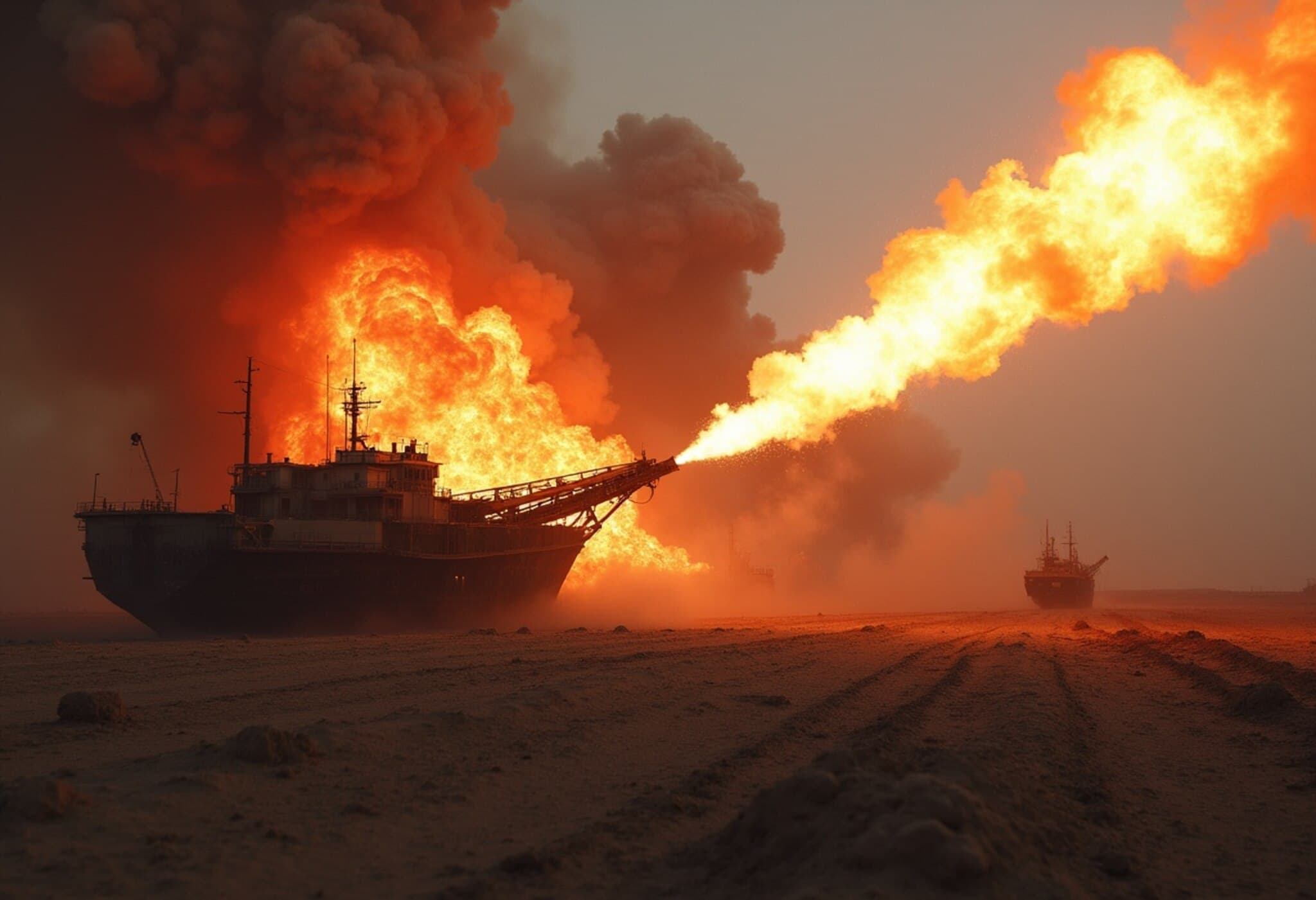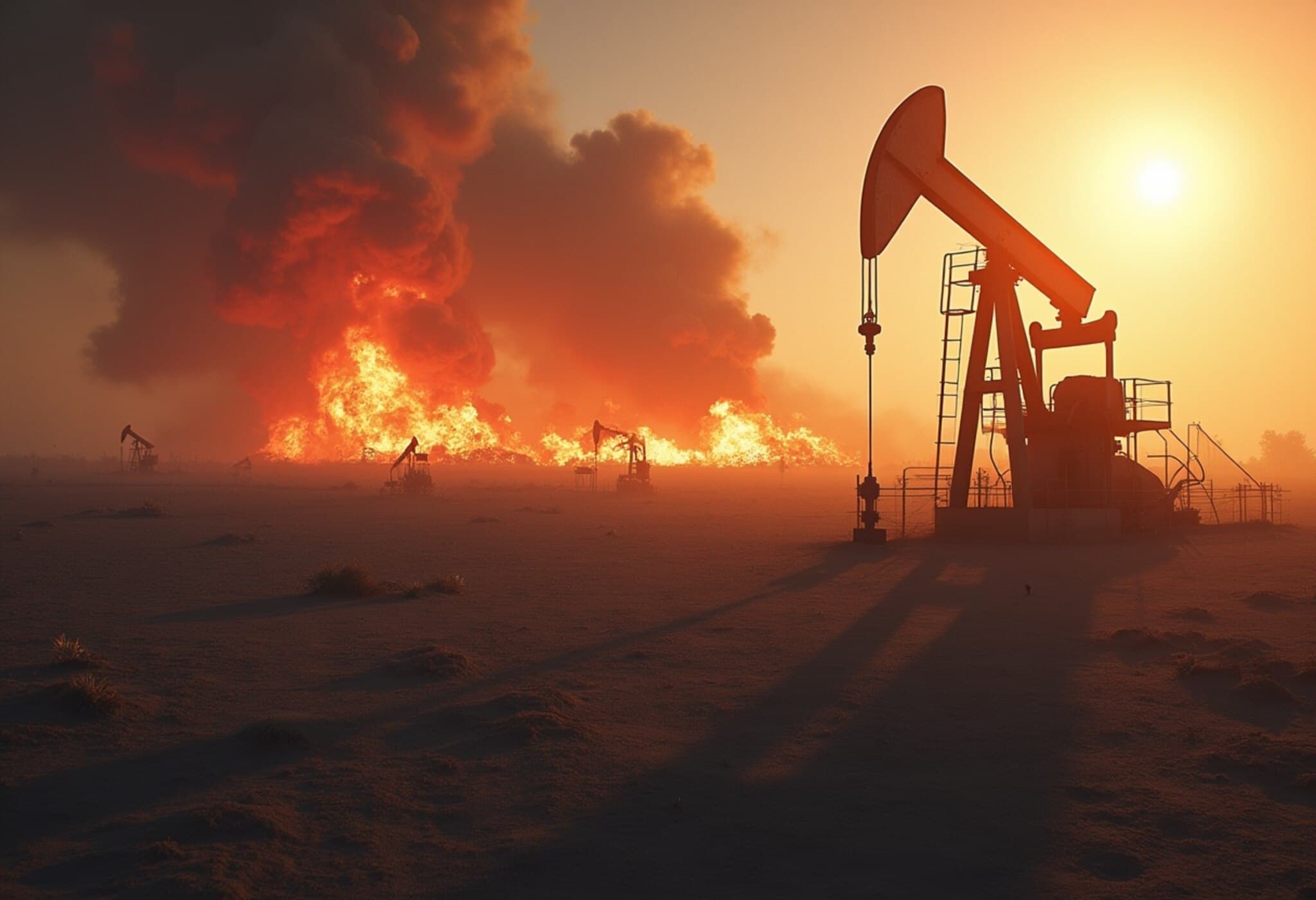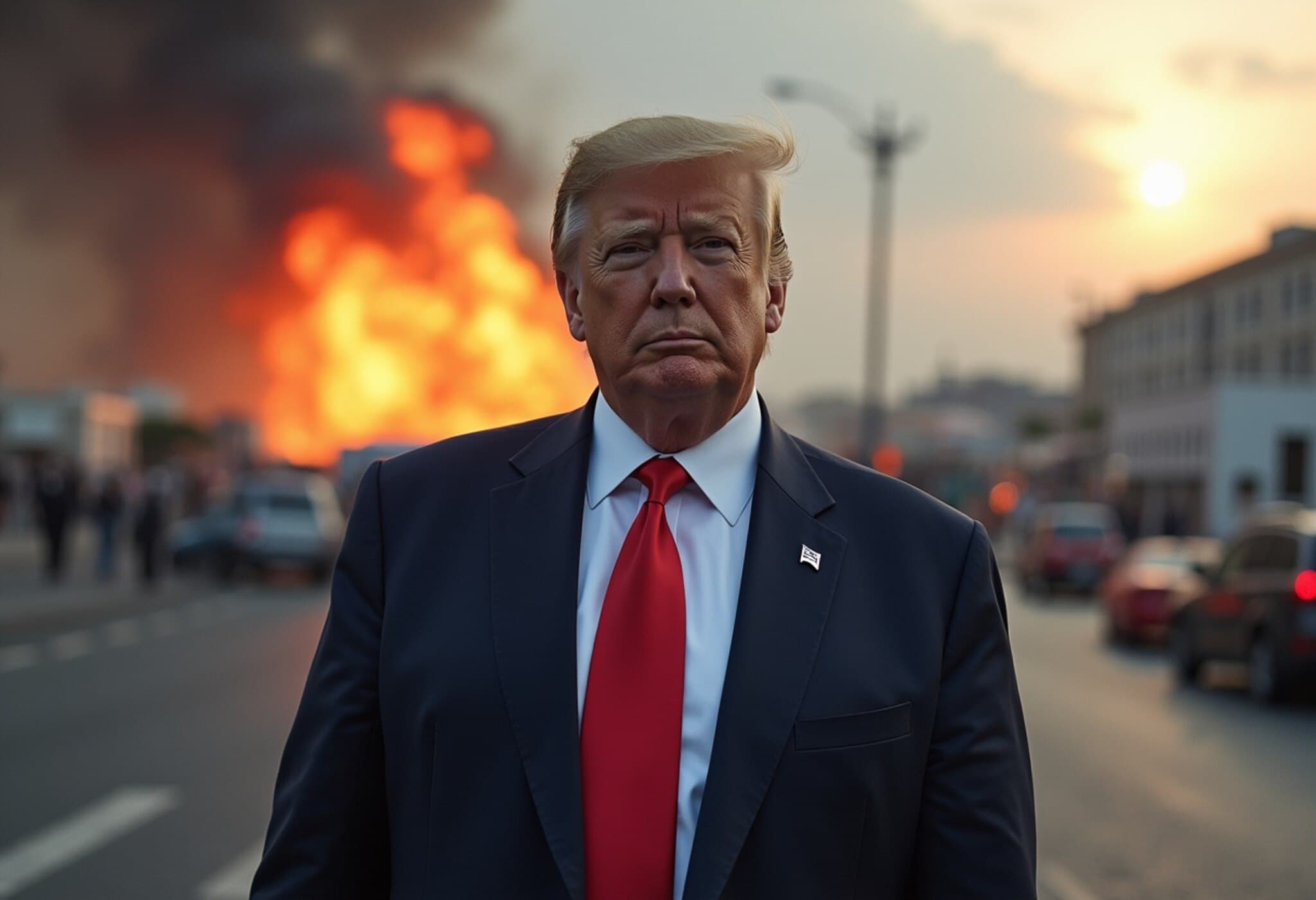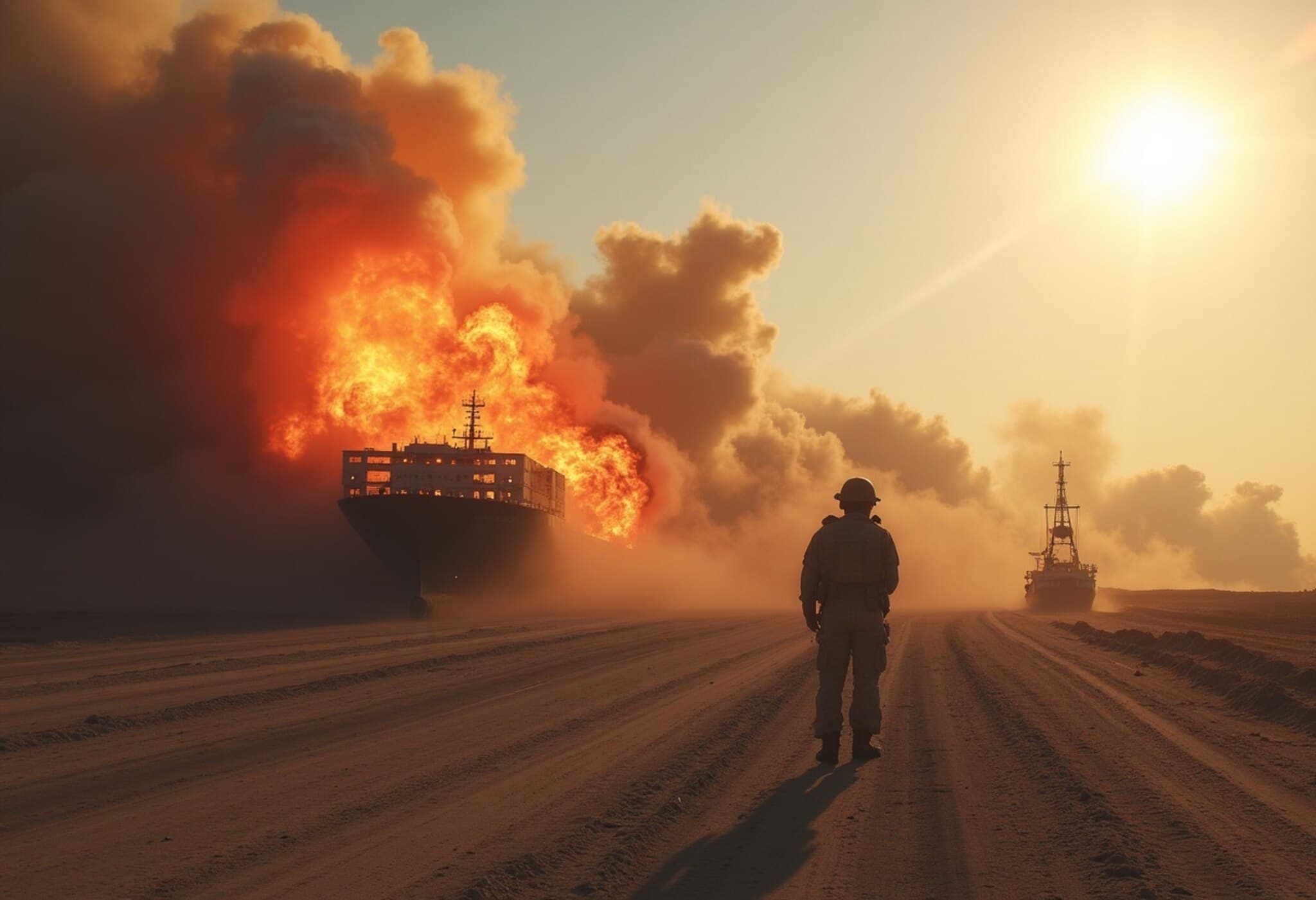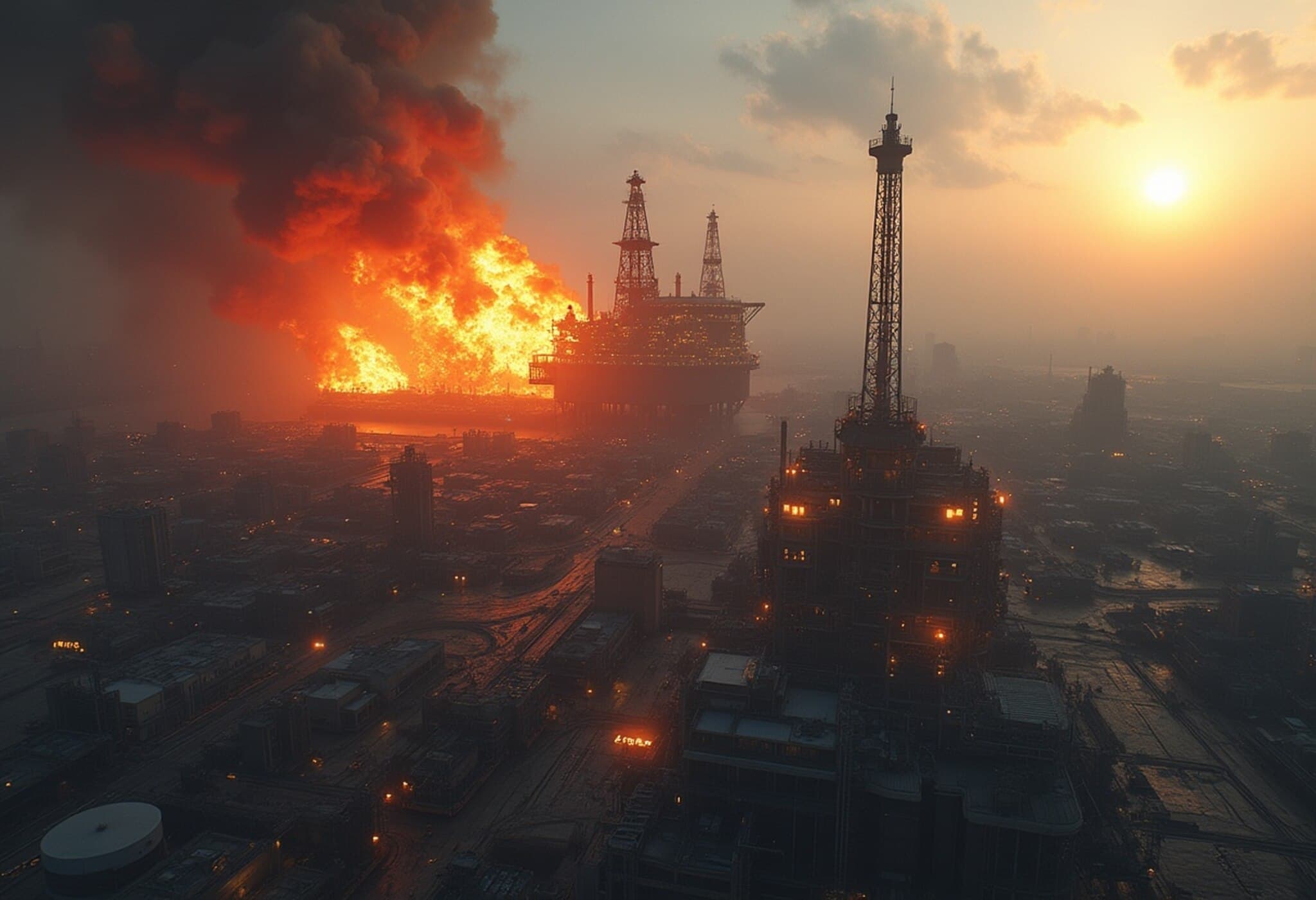European Markets Edge Higher Despite Middle East Strife
European stock indices witnessed modest gains following a turbulent period marked by escalating conflict in the Middle East. By mid-morning London time, the broad Stoxx 600 index climbed 0.33%, buoyed primarily by financial and energy sectors. European banks rose approximately 1.3%, while oil and gas stocks added about 1.18%, driven by mounting geopolitical risks that also propelled crude prices upward.
On the downside, healthcare shares declined by 0.7% and food and beverage companies slipped 0.5%. The cautious optimism among investors suggests a waning rush to safe havens, with gold dipping 0.5% and U.S. Treasuries retreating slightly as confidence crept back into markets.
Despite ongoing missile strikes between Israel and Iran, market participants remain watchful but not hypervigilant. Analysts warn that any intensification of hostilities could still trigger sudden market shocks.
Renault Shares Tumble Following CEO Departure Announcement
French automaker Renault saw its stock price plunge over 7% after confirming that CEO Luca de Meo would step down. The leadership change unsettled investors amid speculation that de Meo may transition to a leading role in the luxury fashion sector, though neither he nor the fashion group has officially announced such a move.
In contrast, shares of the implicated fashion house surged approximately 7%, as analysts noted that de Meo's expertise in brand management could signal a strategic pivot for the company.
Market Outlook: Oil Prices Stay Elevated Amid Conflict
Crude oil prices maintained upward momentum due to ongoing tensions in the Middle East. At 7:43 a.m. London time, West Texas Intermediate (WTI) futures were trading around $73.50 per barrel, up 0.7%, while Brent crude edged up 0.46% to approximately $74.57 per barrel.
Last week, U.S. crude surged more than 13% following Israel’s airstrikes targeting nuclear and missile facilities in Iran. The recent drone attack on Iran’s South Pars gas field by Israeli forces heightened supply concerns, supporting crude prices amid a fragile geopolitical backdrop.
Airbus Anticipates Softer Paris Air Show Orders
Airbus CEO Guillaume Faury tempered expectations for this year’s Paris Air Show, noting that recent regional conflicts and the shadow of last week's Air India tragedy are impacting industry sentiment. While the number of aircraft orders is expected to fall short of the record-breaking 2023 event, the show remains a vital platform, especially for defense-related deals amid rising security concerns worldwide.
The 2023 Paris Air Show had an ‘‘exceptional’’ turnout following pandemic disruptions, but this year’s event—held alongside increasing defense priorities—will draw numerous international delegations, highlighting evolving industry dynamics.
Key Economic Events to Watch This Week
Investors are bracing for a packed week of important developments. The U.S. Federal Reserve is set to announce its interest rate decision on Wednesday, with markets nearly unanimously expecting rates to remain steady despite political pressures.
Other notable events include the commencement of the Paris Air Show, likely to be dominated by geopolitical tensions and aviation safety discussions, and a summit of Group of Seven (G7) nations in Canada addressing global economic and security challenges.
Economic data releases such as Germany and Europe's ZEW sentiment survey, U.K. inflation figures, and the Bank of England’s policy decision later in the week will also keep traders busy. Forecasts currently lean toward the Bank of England holding rates at 4.25%.
Market Open: Cautious Start Amid Geopolitical Risks
Futures data indicated softer openings across major European bourses, with London’s FTSE 100 set to open slightly lower, alongside modest declines anticipated for Germany’s DAX, France’s CAC 40, and Italy’s FTSE MIB. Persistent concerns about escalating Israel-Iran tensions continue to weigh on investor sentiment, driving safe-haven gold prices higher.













